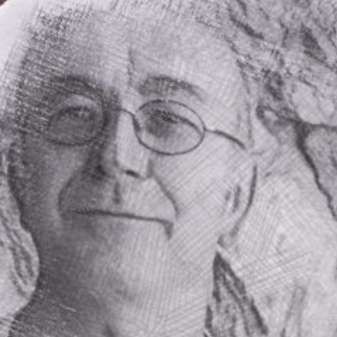A “post-season friendly” for the RSNO, this Usher Hall concert formed part of the Qatar UK 2013 Year of Culture Musical Celebration. Knowing almost nothing of this former British protectorate, I was surprised to discover that the population is just under two million – approximately 40% of Scotland’s. An additional thread in this Qatari-British-Scottish programme was that of youth, represented here by the choir of Edinburgh’s St Mary’s Cathedral, who featured in the opening anthem Zadok the Priest by an adopted Brit, George Frederick Handel. The 22-strong choir would have had their work cut out competing with even the most sensitive symphonic forces, but such was the diction and attack of these young choristers, some of whom looked as young as eight or nine years old, that they could be heard clearly. Their deftness in the semiquaver “Amen” passages was particularly impressive.
The choir’s youthful optimism also informed David Heath’s 2013 Hope Springs Eternal. The title has less to do with Alexander Pope’s assertion that “hope springs eternal in the human heart” than with thoughts expressed in the sleeve notes of A Love Supreme by John Coltrane, whom Heath regards as a “universally acknowledged musical prophet”. The choir intoned solemnly to match the opening “darkness and despair” before the piece blossomed into a brighter, richer sound world, given wing by Heath’s euphoric harmonies.
Heath’s piano concerto, El Hedeiya (“The Gift”) was commissioned by this evening’s soloist, Glasgow-born Amira Fouad. Perhaps it would be closer to the truth to say one of the soloists, as much of the piece revolves around dialogue between piano and North African drums, wonderfully played here by Gary Kettel. The piece’s tensions spring from each of these solo instruments’ “disinclination” to hear and respond to the other. This was well conveyed by Kettel who, at one point of scored frustration, downed drums and sat back, arms folded. Only when each part allows the other to be heard, and then responds in like manner, can the musical dialogue, and the human discourse it represents, take off. Once again there were beautiful harmonies. Fouad opened with thick clusters on the piano. As the texture changed, I could detect Heath’s admiration for the piano style of Coltrane sideman McCoy Tyner. His signature mix of ascending paired fourths in the left hand, counterpointed in the right by descending pentatonic sequences, gave the piece a real lift. This was my first hearing of Heath’s music and I was very much taken with this versatile composer who has made Edinburgh his home.
Like Fouad, Wael Binali was born in the UK and is also very active in Qatari cultural life. His current residence is in West Hollywood, California, as film music is his calling. His pictorial mindset is evident even in works not commissioned for cinema, such as his 2012 Earth. Written for the United Nations COP 18 Climate Change Conference, its four sections, “Plunder”, “Wound”, “Renewal” and “Hope”, lay bare man’s role in the crisis and possible solution. The energetic and rhythmically irregular opening movement, bristlingly played here, vividly conjured man’s frantic, ant-like industry in emptying earth and sea of their riches. The art of film music, for me, lies in the seemingly impossible task of informing the emotions while remaining all but unnoticed, for which reason the music mostly avoids attention-grabbing, rigorous thematic development. Stripped of the visual content which the music normally supports, the music can sound somewhat adrift, even when excellently played as was the case here. Film music idioms being what they are, there was plenty of exposure for the six-strong RSNO horn section, who were in excellent form. I enjoyed the Middle Eastern flavour with which Binali managed to infuse a Western orchestra in Journey to the Oasis, a suite of pieces arranged and conducted by David Heath. A touching addition to the touching “hands across the sea” nature of this project, was acknowledgement in Binali’s own programme note of the skill with which Heath had woven together unrelated material, and the light touch with which he had handled the music and concerns of a “self proclaimed control freak”.
The final item in this Qatari-Scottish-British evening was the 1919 Cello Concerto Op. 85 by that most English of composers, Edward Elgar. The soloist was former BBC Young Musician of the Year Guy Johnston, whose virtuosic performance was offset by his modest and unassuming demeanour. As lovers of this gem of the repertoire will know, Elgar demands of the soloist adroit navigation of the full range of the instrument. Johnston elicited a wonderful sound from both the depths and stratospheric heights of his 299-year-old David Tecchler cello. A consummate performance from soloist and orchestra to end a very enjoyable evening.


